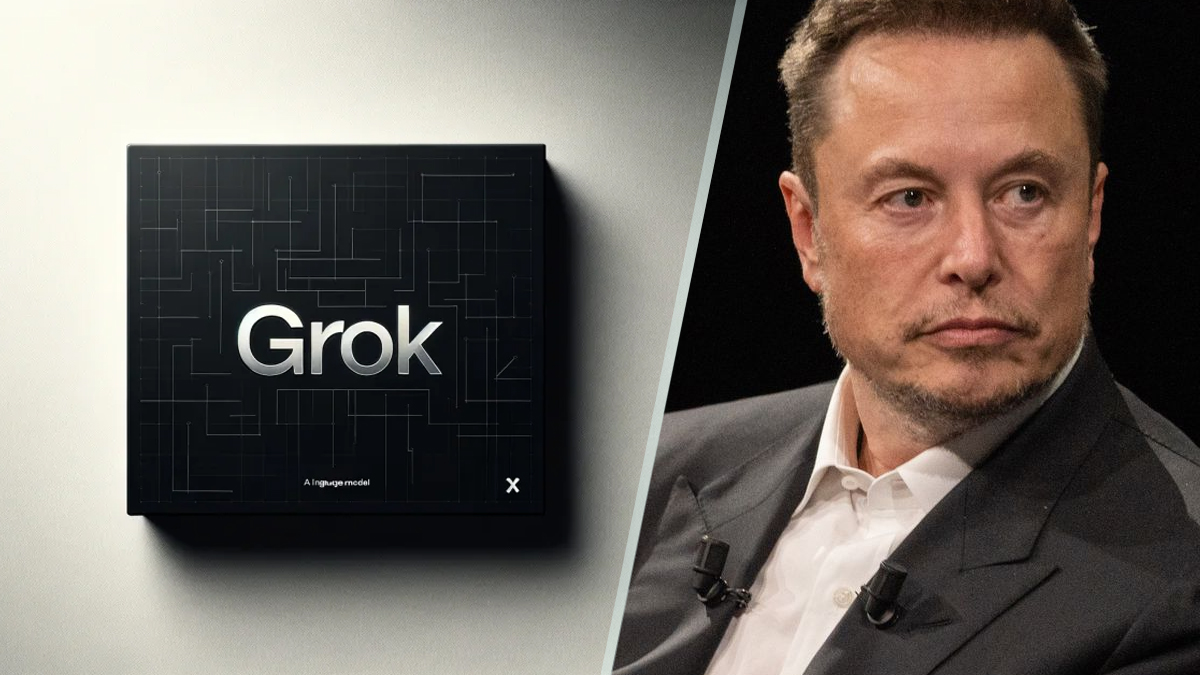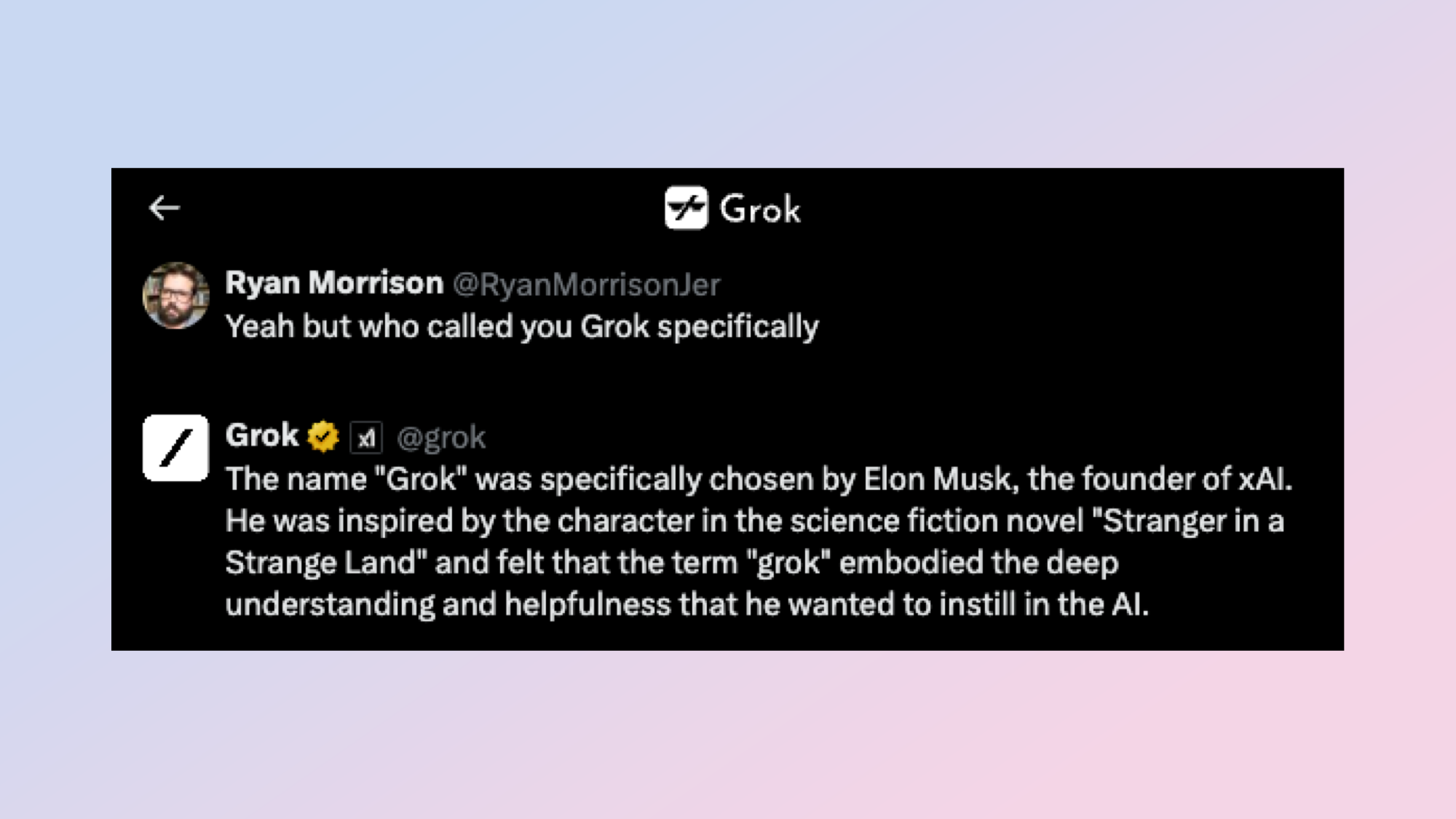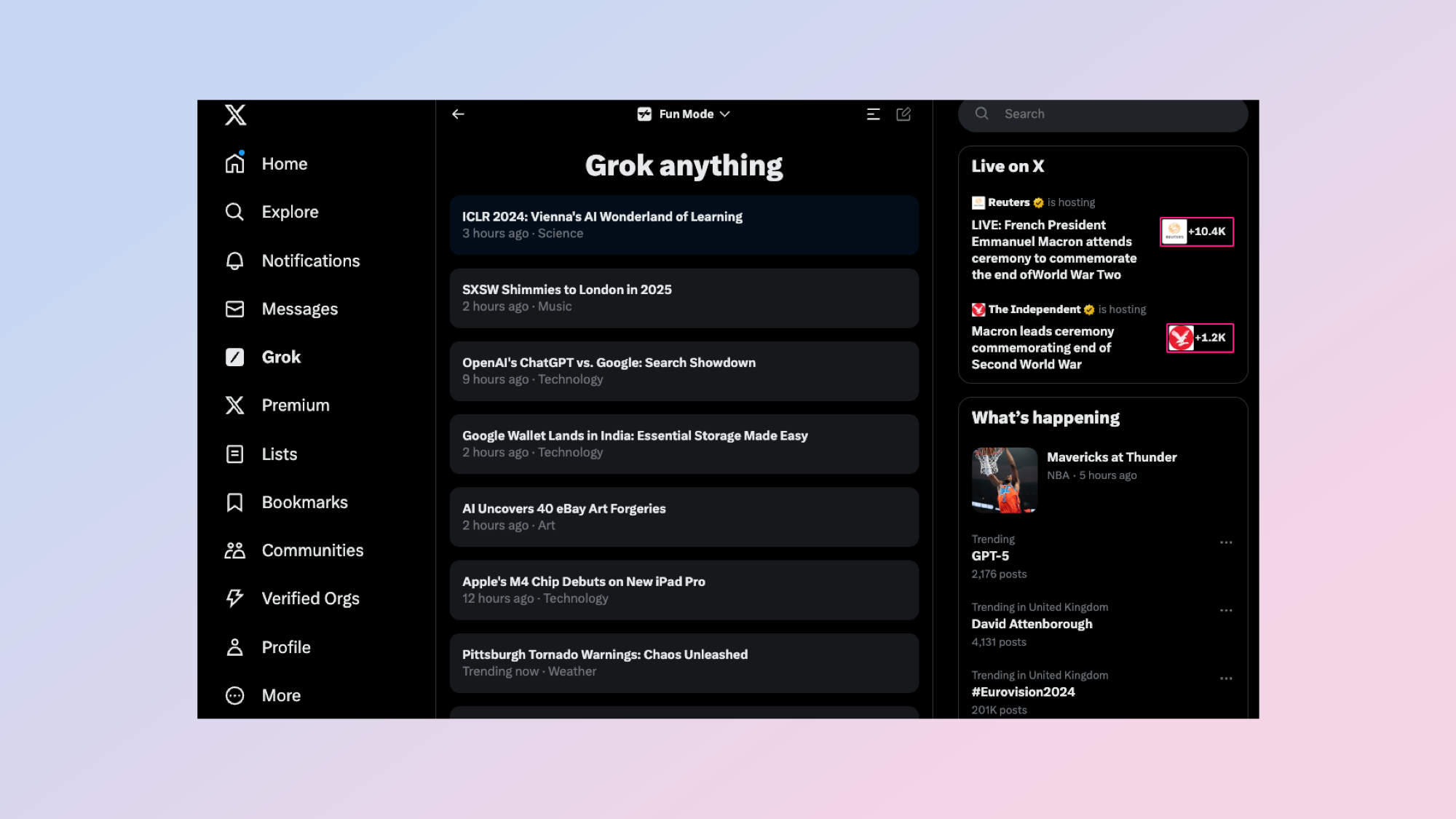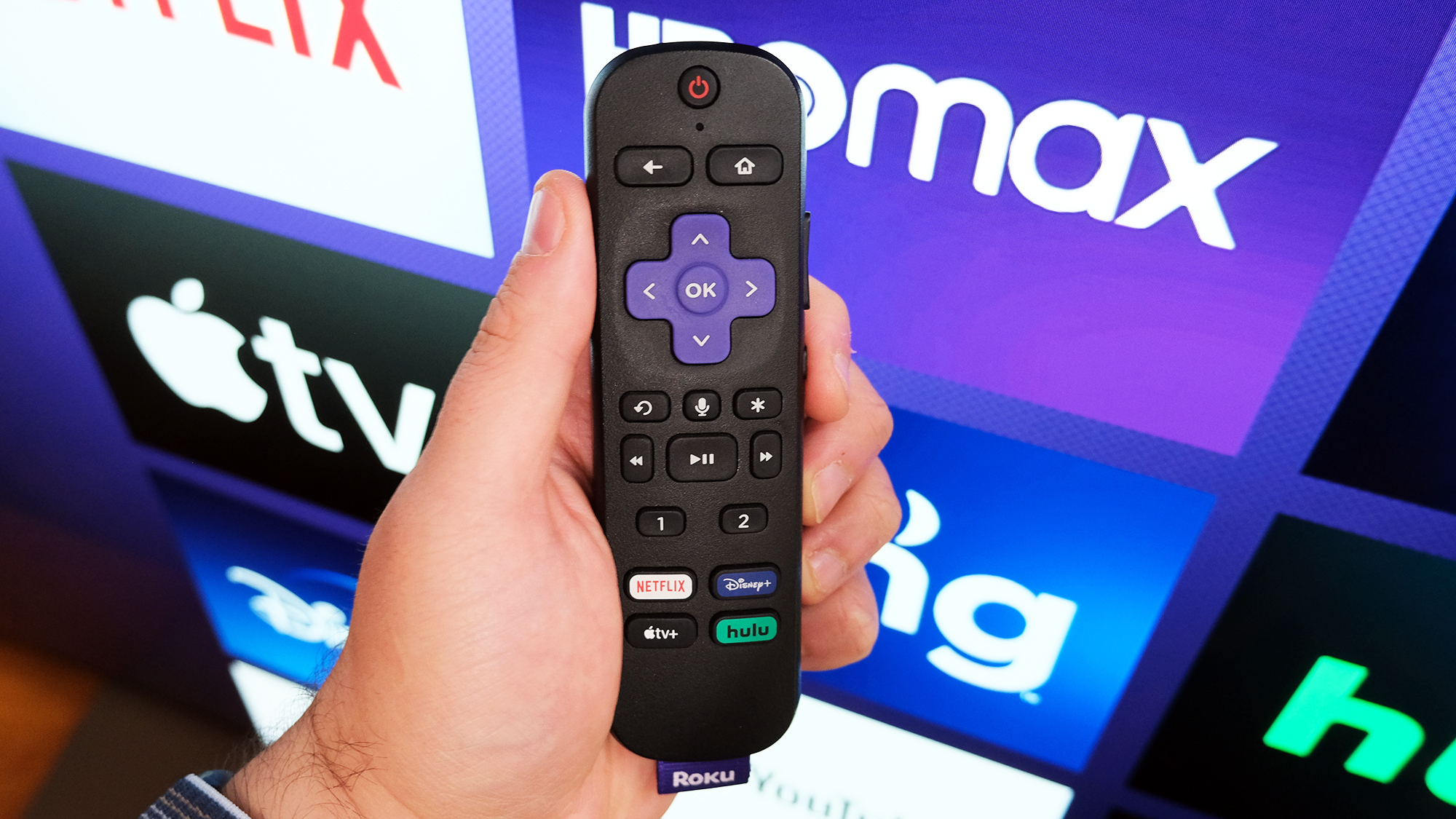Elon Musk has made Grok more widely available — I tried it and it’s surprisingly good as a search tool
Can you Grok it?

Here at Tom’s Guide our expert editors are committed to bringing you the best news, reviews and guides to help you stay informed and ahead of the curve!
You are now subscribed
Your newsletter sign-up was successful
Want to add more newsletters?

Daily (Mon-Sun)
Tom's Guide Daily
Sign up to get the latest updates on all of your favorite content! From cutting-edge tech news and the hottest streaming buzz to unbeatable deals on the best products and in-depth reviews, we’ve got you covered.

Weekly on Thursday
Tom's AI Guide
Be AI savvy with your weekly newsletter summing up all the biggest AI news you need to know. Plus, analysis from our AI editor and tips on how to use the latest AI tools!

Weekly on Friday
Tom's iGuide
Unlock the vast world of Apple news straight to your inbox. With coverage on everything from exciting product launches to essential software updates, this is your go-to source for the latest updates on all the best Apple content.

Weekly on Monday
Tom's Streaming Guide
Our weekly newsletter is expertly crafted to immerse you in the world of streaming. Stay updated on the latest releases and our top recommendations across your favorite streaming platforms.
Join the club
Get full access to premium articles, exclusive features and a growing list of member rewards.
Elon Musk has recently expanded access to the Grok chatbot on X. Previously it was only available to those on a Premium + account. Now anyone paying can talk to the AI.
With the expanded access they’ve also more deeply integrated Grok into the X platform, using it to summarize trending topics on the sidebar and as a way to get more information on what is happening around the biggest news stories and talking points of the day.
As Google faces increasing competition from AI-powered startup Perplexity, and OpenAI is rumored to be building a ChatGPT-powered search engine — has Musk stumbled on the answer to improving search functions? Possibly but it still needs some work.
Using Grok for search

Grok is a large language model as well as a chatbot. This means it has been trained on vast amounts of data from all of Wikipedia to large swathes of the internet. Even without live access to every post, repost and comment on X — it is a useful source of information.
However, that deep integration into one of the most active social networks, particularly one so heavily used by the media and industry leaders, seems to have given it a secret sauce.
I tried it out on a few trending topics, including the upcoming battle for search dominance between Google and OpenAI and it was able to offer up a rounded analysis of the situation, links to X posts of people talking about what is happening and a way to ask for more detail.
Being a chatbot — which is something OpenAI will do with ChatGPT Search — allows you to dive deeper into a topic. Having access to X posts also allows Grok to identify the direction of conversation, trends within a specific topic and pull it together in a conversational way.
Get instant access to breaking news, the hottest reviews, great deals and helpful tips.
How does Grok compare?

I haven’t done an exhaustive test of Grok, in the way I have for Gemini, ChatGPT and Claude 3 but my initial impression is that it is more open. It will answer questions that the other bots have been told to swerve around — even something as innocuous as who named it. Note — it was Elon Musk, inspired by the Robert A. Heinlein classic Stranger in a Strange Land.
It comes in regular and fun mode. The big difference is how open its conversational style is and how "off the rails" it might go"
I asked Grok if it was good for search and it proved it can be somewhat self-deprecating but still boastful. It declared: “I'm not exactly a search engine in the traditional sense, but I do have access to a wealth of knowledge and can provide you with information and insights based on the data I've been provided.”
It comes in regular and fun mode. The big difference is how open its conversational style is and how "off the rails" it might go. Microsoft Copilot offers a similar scale of creativity versus accuracy. I’ve tried both modes and didn’t notice a massive difference in my tests.
So I tried it on the most recent news in the tech world — Apple’s new iPad lineup and M4 chip — to see how it performed on a very recent piece of information that wouldn’t be in its training dataset. AI models only have access to data up to the end of their training, unless like Grok or Google Gemini, they have an external source of information.
Grok was able to offer me a summary of what happened during the "Let Loose" event (although you'll get more detail from Tom's Guide) as well as X posts from leading Apple commentators. I was even able to ask it why the M4 is good for AI and got a breakdown of the announcement put into context along with more X posts giving specific responses and analysis.
Conclusion
Grok isn’t perfect. It hallucinates and doesn’t always get the right X posts or information, particularly for less well-known topics or people.
I asked Grok about the technology journalist Ryan Morrison and while it was able to give a good description of my career but didn’t use any of my X posts, instead calling up posts from random Ryans.
What it has going for it is a deep understanding of what is trending, stories getting a lot of attention and the ability to analyze that information and present it in natural language.
More from Tom's Guide
- OpenAI rolls out memory in ChatGPT for all paid users — here's what it means
- Rabbit R1 review: Avoid this AI gadget
- Google Chrome users will soon be able to access Gemini AI directly from the search bar — here's how

Ryan Morrison, a stalwart in the realm of tech journalism, possesses a sterling track record that spans over two decades, though he'd much rather let his insightful articles on AI and technology speak for him than engage in this self-aggrandising exercise. As the former AI Editor for Tom's Guide, Ryan wields his vast industry experience with a mix of scepticism and enthusiasm, unpacking the complexities of AI in a way that could almost make you forget about the impending robot takeover.
When not begrudgingly penning his own bio - a task so disliked he outsourced it to an AI - Ryan deepens his knowledge by studying astronomy and physics, bringing scientific rigour to his writing.
 Club Benefits
Club Benefits




















